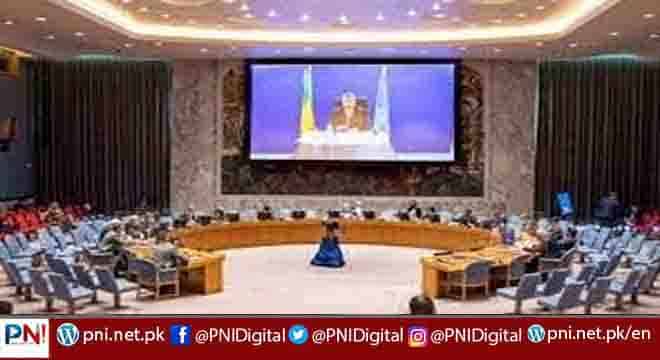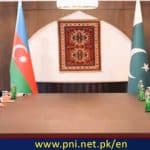UNITED NATIONS, Feb 10 (APP):The global fight against the ever-shifting threat posed by Islamic State in Iraq and the Levant (ISIL/Da’esh) and its affiliates remains a “long-term game” for which there are “no quick fixes”, the senior United Nations counter-terrorism official has told the Security Council.
Valdimir Voronkov, Under-Secretary-General for Counter-Terrorism, said that recent events demonstrate the very real threat still posed by ISIL/Da’esh, Al-Qaeda and their spin-off groups.
Outlining the contents of the Secretary-General’s latest report, he also recalled his own recent briefing to the Council on the terrorism landscape in north-east Syria following an ISIL/Da’esh jailbreak attempt in Al-Hasakah. That event, which resulted in significant clashes and put hundreds of children at risk, was a “shattering and sober reminder of Da’esh’s extreme brutal violence”, he said.
Following those events, a targeted attack reportedly by United States special forces resulted in the death of ISIL leader Abu Ibrahim Al-Hashimi Al-Quraishi, marking perhaps the most significant recent blow to the group’s leadership.
However, Voronkov warned that Da’esh is known for its ability to regroup and even intensify its activities following major defeats.
“We have learned over the past two decades that counter-terrorism is a long-term game and that there are no quick fixes,” he said, underlining the need for both military counter-terrorism operations and more comprehensive measures with a focus on prevention.
Against that backdrop, Voronkov called for renewed efforts to rebuild social trust and restore human dignity.
Such work should begin by addressing the desperate situation in displacement camps and detention facilities across Syria and Iraq, where thousands of people – especially children with presumed family links to ISIL members – remain stranded through no fault of their own.
Citing the risk of their further radicalization and recruitment, he welcomed efforts by those Member States that have repatriated foreign fighters and their family members.
However, the current pace of repatriation lacks sufficient urgency, and more efforts are needed to ensure the protection, rehabilitation and reintegration of repatriated individuals.
The Under-Secretary-General also reported on the expansion of the network and its affiliates beyond Syria and Iraq, which he said continues at an “unsettling” scale and pace.
The epicentre of the group’s activities now appears to be the African continent, with terrorist activities intensifying in Central and West Africa – especially Burkina Faso, Cameroon, the Democratic Republic of Congo, Mali, Niger and Nigeria – and attacks increasingly reported in the border area between Mozambique and Tanzania.
Pointing to potential spill-over effects that could reach even beyond the continent, he urged countries to use every tool at their disposal to sustain important gains made against Da’esh, preventing its further regional expansion, curtailing its attack capabilities and preventing additional recruitment.
“As we begin a new decade of counter-terrorism, it is time to ask ourselves difficult questions and search for honest answers,” he said.
Follow the PNI Facebook page for the latest news and updates.








